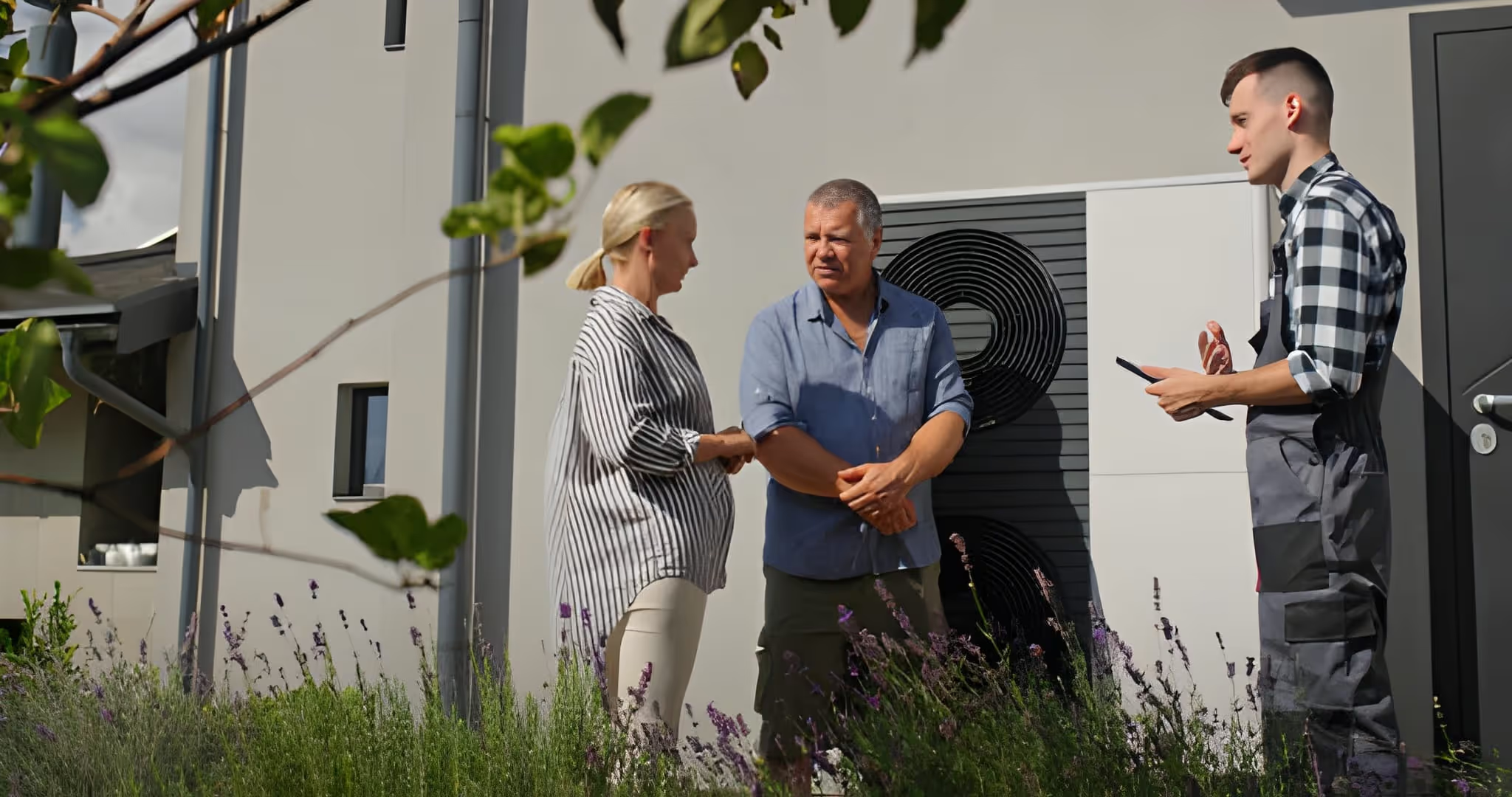Commercial vs Residential HVAC Mission, BC | HVAC Service

Expert HVAC Solutions for Your Mission, BC Home or Business
Choosing the right heating, ventilation, and air conditioning (HVAC) system is crucial for comfort, efficiency, and operational success. In Mission, BC, Rep-Air Heating & Cooling stands as your trusted partner, offering unparalleled expertise in both commercial HVAC and residential HVAC services. Whether you're a homeowner seeking reliable comfort or a business owner ensuring optimal indoor environments, understanding the fundamental differences between these systems is the first step towards a perfectly tailored solution.
With over 50 years of combined experience, our highly trained technicians are equipped to handle the unique complexities of any HVAC challenge. We don't just provide services; we deliver personalized home comfort solutions with a personal touch, ensuring integrity, professionalism, and lasting customer satisfaction.
Let's explore the key distinctions between commercial and residential HVAC, and how Rep-Air Heating & Cooling is perfectly positioned to serve your specific needs.
Understanding Your HVAC Needs: Home vs. Business
While both residential and commercial HVAC systems aim to control indoor climate, their design, scale, and operational demands are vastly different. Knowing these distinctions ensures you get the most efficient and effective system for your property.
1. System Needs & Purposes
- Residential HVAC: Primarily designed to maintain comfort for a smaller, consistent number of occupants within a single family home or apartment. These systems prioritize quiet operation, energy efficiency for smaller spaces, and localized temperature control for family comfort. Rep-Air specializes in reliable furnace repairs, new air conditioning installations, and energy-efficient heat pump solutions designed to keep your home cozy in the winter and cool in the summer.
- Commercial HVAC: Engineered to manage the climate for a larger, often fluctuating number of people across multiple zones, common in offices, retail spaces, or industrial facilities. Commercial systems demand robust power, advanced zoning capabilities, and often integrate sophisticated ventilation for indoor air quality. Our commercial HVAC experts understand the critical need for consistent comfort to ensure employee productivity and customer satisfaction, offering scalable solutions for any business size in Mission, BC.
2. Placement & Accessibility
- Residential Units: Typically found on the ground level beside the home or within a basement/utility closet. Their smaller footprint allows for discreet placement and relatively straightforward access for maintenance and repairs. Rep-Air technicians provide prompt, respectful service, ensuring your home's system is maintained without disruption to your daily life.
- Commercial Units: Due to their significant size and power, commercial HVAC systems are commonly installed on rooftops. This strategic placement frees up valuable ground space for businesses, offers protection from vandalism, and allows our professional technicians easier access for comprehensive inspections, intricate repairs, and new installations without impacting your operations.
3. System Design & Complexity
- Residential Systems (Split Units): Most homes utilize "split" systems, where the evaporator coil (indoor unit) and compressor (outdoor unit) are separate components. These systems are generally simpler to maintain and repair, typically managed by a single thermostat for the entire home. Rep-Air offers seamless installation and efficient servicing for all residential split units, ensuring optimal performance and longevity.
- Commercial Systems (Packaged & Modular Units): Businesses often rely on "packaged" units that combine heating and cooling components into a single, robust system. Many commercial setups are also "modular," allowing for the addition or removal of components to adapt to changing heating and cooling demands as your business grows or reconfigures. These systems are highly complex, often featuring multiple thermostats for precise zone control. Our seasoned commercial HVAC specialists possess the in-depth knowledge and experience required to expertly install, maintain, and repair these intricate modular units, preventing costly downtime for your business.
Your Trusted Partner for All HVAC Needs in Mission, BC
Whether you're looking for a dependable heating solution for your home, an efficient air conditioning system for your business, or require expert service for your existing setup, Rep-Air Heating & Cooling is here to help. We pride ourselves on transparent communication, timely service, and a dedication to excellence that sets us apart. Our commitment to ongoing education and industry certifications means we're always up-to-date with the latest technologies, ensuring you receive the most efficient and effective solutions available.
Ready to explore the perfect HVAC solution for your property?
Discover Our Tailored HVAC Services:
For Homeowners: Keep Your Family Comfortable Year-Round
Explore our comprehensive residential heating, cooling, plumbing, and electrical services. From furnace repair and new air conditioning installations to smart thermostat integration, we've got your home comfort covered. Explore Residential HVAC Services in Mission, BC (Link to hypothetical residential HVAC services page)
For Business Owners: Optimize Your Commercial Environment
Learn about our specialized commercial HVAC services designed for reliability, efficiency, and scalability. Ensure optimal climate control for your employees and customers with expert maintenance, repair, and installation. Explore Commercial HVAC Services in Mission, BC (Link to hypothetical commercial HVAC services page)
Schedule Your Expert Consultation Today!
Don't guess when it comes to your heating and cooling. Our team of highly trained technicians is standing by, ready to provide professional guidance, on-time repairs, and friendly service tailored to your specific needs. Experience the Rep-Air difference – where customers are treated like family.
Contact Rep-Air Heating & Cooling today to get started with service by requesting a quote online, or by phone at 1-844-218-3362.
hear what our satisfied clients have to say
Neighbourhoods in the Fraser Valley

